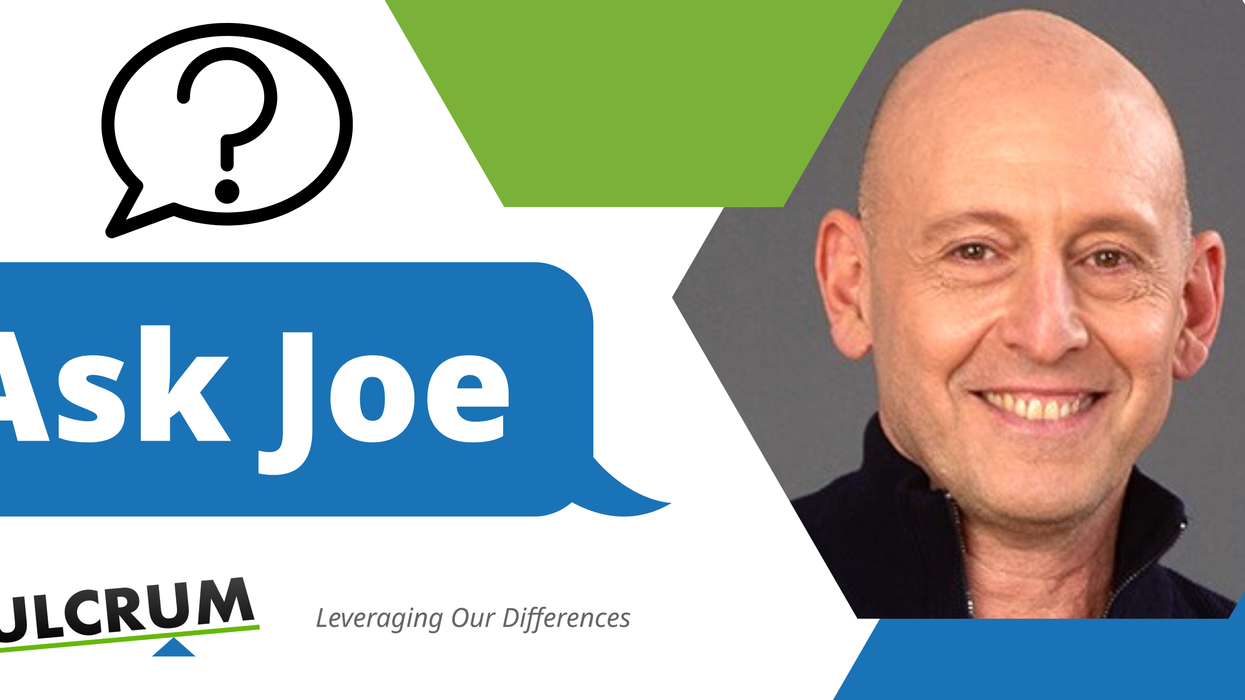Hi, Joe.
How do you work with people to bridge divides when they really don't want to bridge the divide? I work as a mediator and communication coach and have worked with some clients to help them bridge divides in their families. Often people hold on to their world view and beliefs so tightly and get so defensive they won't consider anything else and are not interested in anything else. It’s been a real pain point for clients of mine.
Thank you,
Bridging Coach
Hey, Coach.
Wow, you must be doing some beautiful work. And so necessary at this time, as the uncertainty and anxiety are only increasing. As a mediator, I’m sure you have powerful tools to help bring people into deeper connection and reconciliation. While the basis of Fierce Civility is getting back to heart connection, the “fierce” part of the work is understanding the difference between fierce compassion and what I call “chronic niceness,” and knowing when and how to use fierceness in a way that doesn’t turn into aggression or harm.
With volatile issues, and when the stakes are high, I usually start the process with the question: “Do you want to see a resolution or reconciliation to this dilemma, even if it means that you may need to (even slightly) adapt or shift your viewpoints or desired outcome?” We don’t move on until we get a “yes” from everyone. This approach works with families, as well as with community groups and organizations.
This one question can take days, even months, to work through until everyone gets to a yes. Fear, trauma, anger and unspoken truths all come to the surface, leading to healing, reconciliation and a deeper empathy for one another. From the perspective of Fierce Civility, peoples’ hearts soften and all parties involved remember what the other means to them if they had a personal relationship. Or if they are members of a school board or community council, new alliances can be made. This allows the parties to move forward and on to the next steps of addressing the issues with more ease. They get a deep embodied knowing of the wisdom we learned from the Rolling Stones: “You can’t always get what you want, but if you try some time, you might just find, you get what you need.” I’m sure you know from your experience that expressing “wants” leads to conflict but, with patience and skill, expressing “needs” leads to connection, understanding and the opportunity for creative solutions that meet the needs of all involved.
But if someone holds on to their “no,” then you as a mediator and coach know you can’t make someone do what they don’t want to do. While this may be tragic for the other parties, the beauty of this is that you have done your part: You were willing to adjust and bridge, and you gave that person the opportunity to step into connection and reconciliation. You allowed them to be accountable for their choices. Their tightness and defensiveness are exposed, as well as their lack of interest in preserving the integrity of the relationships or their concern for the needs of others. And this is when true Fierce Civility is needed.
At this point, the problem is no longer about political issues or vaccines, for instance. When their trauma, anxiety or emotional instability is so extreme that they are no longer concerned about the needs or safety of others, you could consider treating the situation like someone who suffers from an addiction. Think about how families are torn apart by a member who can’t control their alcohol or drug use to the point that they are willing to sacrifice the integrity and peace of a family to hold on to what makes them feel good, despite the possible self-destructive outcomes.
I am not a professional psychologist, but after decades of working with people around the world, I’ve studied and witnessed the effects of trauma on the deepest layers of human behavior. My suggestion is to consider that allowing family members, friends or community members to remain intractable on the issues without holding them accountable is only enabling or reinforcing their attachment, or addiction, to their beliefs. It may be time for an intervention, with both fierceness and compassion.
The question to raise is no longer “how could you possibly believe that?” but “what is going on with you that you are so vehemently attached to what you believe, even at the expense of our relationship?” By appealing to their heart, you may get to a deeper layer of fear, anxiety, pain or feeling of aloneness/powerlessness. If you can get to this point, there may be room for healing and reconciliation. This can transform and empower the existing relationship, leading to a renewed level of love and connection.
These are just some ideas. But I believe what is most needed now in our cripplingly polarized, volatile world is not only for more of us to agree with one another, but for us to truly see and listen to one another. The more of us that find our way back to our hearts, the more we can create deeper, more resilient alliances that can stand strong in the face of the volatility.
Keep on bridging, Coach!
Joe
Ask Joe is dedicated to exploring the best ways to transform tensions and bridge divides. Our resident advice columnist and conflict resolution specialist, Joe Weston, is here to answer your questions in order to resolve tension, polarization, or conflict.
Learn more about Joe Weston and his work here. Make sure to c heck out Joe’s bestselling book Fierce Civility: Transforming our Global Culture from Polarization to Lasting Peace, published March 2023.
To Ask Joe, please submit questions to: AskJoe@Fulcrum.us.



















